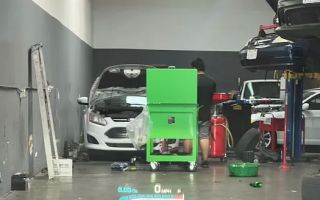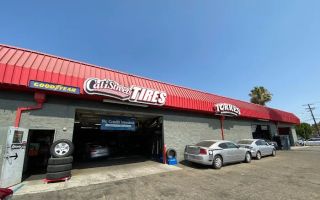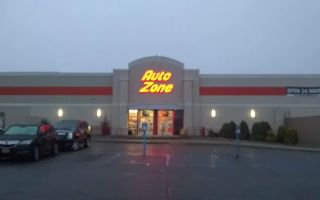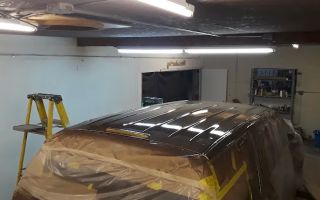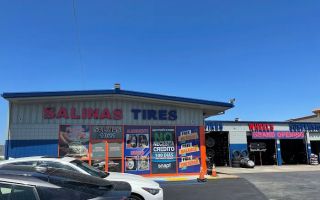What Causes Tire Blowouts More Frequently in the Summer?
We’ve all heard about it, and unfortunately, many of us have experienced it—sudden tire blowouts while driving. One moment everything is fine, and the next, you’re stranded on the side of the road, your car’s tire blown out and no idea how it happened. But did you know that summer is the season when tire blowouts are more frequent? Having experienced my own close call during a scorching summer day, I decided to look deeper into what causes these incidents to be more prevalent during the hot months and why we need to take extra care with our tires as temperatures rise.

MR. TIRE INC.
2078 New York Ave, Huntington Station, NY 11746, USA
1. The Role of Heat in Tire Blowouts
As the summer heat intensifies, it not only affects how we feel but also how our vehicles perform. One of the most significant factors contributing to tire blowouts in the summer is the rise in temperature. The tires on your car, as well as the air inside them, are highly sensitive to heat, which is why tire blowouts are more common in the summer.

MR. TIRE INC.
2078 New York Ave, Huntington Station, NY 11746, USA
1.1 How Heat Affects Tires
The reason heat is such a big factor lies in the way it causes the air inside the tire to expand. When the temperature increases, the air molecules in your tire move more rapidly, leading to an increase in air pressure. If your tire was already slightly underinflated, this expansion can push the tire beyond its capacity, leading to a blowout. The hotter the weather, the more pronounced this effect becomes, especially when combined with other factors like the road temperature and the weight of the vehicle.
As I learned the hard way, when I was driving through an especially hot stretch of highway, I noticed my car wasn’t driving smoothly. The steering wheel was vibrating a bit more than usual. I pulled over to check and noticed that my tire pressure was slightly off—one tire was much lower than the others. That’s when I realized just how dangerous it is to ignore tire maintenance in the summer heat. After checking, I found out that the tire had already been underinflated, and the heat caused the pressure to spike, putting it at risk for a blowout.
1.2 The Effect of Road Surface Temperature
Not only does the temperature of the air play a role, but the road surface temperature also adds stress to your tires. On especially hot days, the roads themselves can heat up to high temperatures, sometimes well above 100°F. When your tires make contact with these heated surfaces, it increases the risk of overheating. When tires get too hot, the rubber becomes softer, more prone to damage, and much less effective at maintaining their structural integrity.
On a summer road trip last year, I drove through an area with intense heat waves, and I noticed the road surface seemed to shimmer from the heat. While I thought nothing of it, that’s when I heard a sudden pop. My front tire had blown out. Looking back, I now know that the excessive heat from the road combined with the high ambient temperatures contributed significantly to the blowout. Overheating tires, especially those that are already under-inflated, are a recipe for disaster on a summer drive.
2. Under-Inflation and Its Increased Risk During the Summer
As mentioned earlier, under-inflated tires are one of the key culprits when it comes to blowouts, and this issue is especially critical in the summer months. The heat causes the air in under-inflated tires to expand even more than it would in properly inflated tires, increasing the chances of a blowout. I’ve had my share of experiences where I neglected to check tire pressure before hitting the road during the summer, and while I didn’t get a blowout, I did notice my car wasn’t handling as smoothly as usual.
2.1 The Dangers of Driving on Low Tire Pressure
Driving on low tire pressure may seem harmless at first, but it can cause serious problems in the long run. As the summer heat exacerbates this issue, the risk of tire failure increases. A tire with low air pressure is more likely to overheat, and the friction between the tire and the road is greater, which accelerates wear and tear. Over time, this weakens the tire’s structure and makes it more susceptible to a blowout.
The pressure of the air inside the tire is crucial for maintaining the tire’s shape, and without the right balance, your tire becomes an accident waiting to happen. A simple tire pressure check before a summer road trip can prevent the frustration of being stranded on the side of the road. I’ve learned that lesson after a few near-miss situations. Now, I make sure to check tire pressure regularly and especially during the summer months.
2.2 How to Avoid Low Tire Pressure in the Heat
To avoid the risk of low tire pressure leading to a blowout, I recommend checking your tire pressure before any long summer drives. Many gas stations offer free tire pressure checks, or you can invest in a simple tire pressure gauge for your car. Ensuring that your tires are inflated to the correct pressure will help reduce the risk of failure and make your driving experience much safer.
3. Tire Condition and Age: A Silent Contributor
Another factor contributing to tire blowouts, particularly in summer, is the condition and age of the tires. Over time, tires naturally degrade, and the rubber becomes less durable. Heat speeds up this process, and if your tires are already worn down, they’re much more likely to fail when exposed to the summer heat.
3.1 The Importance of Regular Tire Inspections
Worn-out tires are more susceptible to blowouts because they have less tread and are more likely to develop weak spots that can fail under pressure. I’ve found that even a tire that looks fine from the outside can have hidden issues like cracks or bulges, which make it dangerous to drive on, especially during the summer heat. Regular tire inspections are essential for ensuring that your tires are in good shape. An inspection should check for the following:
- Cracks or cuts in the rubber
- Bulges or blisters on the tire surface
- Uneven wear on the tread
- Excessive tread wear, which affects traction
If you’ve been driving on the same set of tires for several years or have not had them properly checked, the summer heat could very well cause an issue. In fact, I’ve spoken to people who had to get their tires replaced mid-trip because of unseen damage that led to blowouts. That’s why it’s essential to have your tires professionally inspected if you’re unsure about their condition.
3.2 Tire Replacement as a Preventative Measure
In some cases, tire replacement is the best way to avoid a blowout, especially if your tires are getting old or if they show signs of significant wear. Investing in high-quality tires can reduce the risk of blowouts, and many manufacturers offer tires specifically designed for hot weather conditions that are more durable and less prone to overheating.
4. Driving Habits That Impact Tire Health in Summer
While weather and tire condition play major roles, how you drive also affects the likelihood of a tire blowout. During the summer months, many drivers tend to drive faster, especially when on long trips or highways. Fast driving increases friction between your tires and the road, causing them to heat up faster, especially under heavy loads or during high-speed driving. I’ve had times when I’ve been in a rush and ended up pushing my car to its limits, only to later regret it when I felt the steering wheel vibrating or heard an odd sound from the tires. These signs were my wake-up call to slow down and drive more cautiously.
In addition to speed, hard braking, sudden lane changes, and aggressive cornering all contribute to putting excessive stress on your tires. These actions generate heat and put pressure on the tires, which is compounded in the summer. I’ve learned that when temperatures rise, it’s best to ease off on the gas pedal and take more measured turns to reduce the strain on my tires.
5. Conclusion
Summer weather might be great for a beach trip or a road adventure, but it can take a serious toll on your tires. By understanding the factors that cause tire blowouts more frequently in the summer—from heat and under-inflation to tire condition and driving habits—you can take steps to ensure your safety on the road. Always remember that proper tire maintenance, regular inspections, and careful driving habits can go a long way in preventing tire blowouts and keeping your car in optimal condition. Don’t let the heat catch you off guard—take care of your tires, and your tires will take care of you!
OLD Keywords-44: tire blowouts, summer tire blowouts, tire maintenance, flat tire, towing services SEO Title: What Causes Tire Blowouts More Frequently in the Summer and How to Prevent Them SEO Keywords: tire blowouts, tire maintenance, summer driving, tire pressure, towing assistance SEO Description: Discover why tire blowouts happen more often in the summer and how to prevent them with proper tire care, driving habits, and towing assistance. Stay safe on the road!

